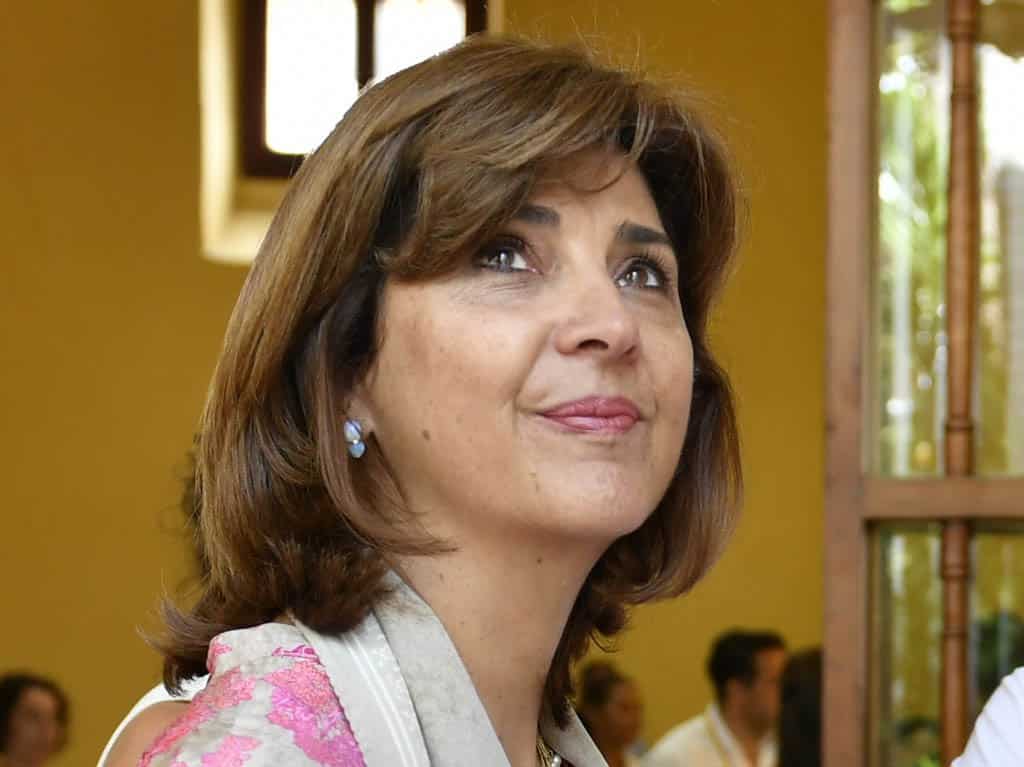The UN Secretary-General’s personal envoy Maria Angel Holguin has still to find the common ground that would lead to new talks on the Cyprus problem. Her comments, after last Wednesday’s separate meetings with the leaders, indicated a level of frustration and a tacit admission that her efforts were not leading anywhere.
Although she had a “very constructive meeting” with President Christodoulides, she preferred to talk about her meeting with civil society groups and the private sector. Her impression was that “everybody wants to move forward” and “for something to happen on the island.” She hoped “the leaders are listening to the people, to civil society,” adding that she thought “it is the responsibility of the leaders.”
Are we to conclude that she is urging the leaders to listen to the people because they are not listening to her? “I think the common ground is in civil society,” she said, implying that it did not exist between the leaders, adding that civil society had to ask them to “move forward.” The common ground in civil society is something positive for Holguin to cling on to, and she continued her meetings with civil society groups on Thursday.
How representative of political sentiment on the two sides are these groups that have given hope to the envoy? The reality is that professional organisations and NGOs do not reflect society in the way the envoy seems to think, nor do they have power and influence to impose their pro-settlement positions on the leaders. Both leaders were elected with the backing of people and parties that do not want reunification, that are satisfied with the status quo and it is their voters rather than civil society that the leaders are inclined to listen to.
Turkish Cypriot leader, Ersin Tatar, is playing tough because he has the full backing of Ankara to do so, and for as long as this is the case he will listen neither to civil society activists nor the opposition parties. If Ankara changes line, so will he. Christodoulides, meanwhile, thanks to Tatar’s hardline approach, is free to make positive sounds and call for a resumption of the talks from where they stopped in 2017. His woes will begin if there is a change of stance by the Turkish side and common ground is miraculously found. He would then come under intense pressure from his main political backers to avoid substantive talks.
The irony is that there is stronger public backing for a new process in the north where Tatar refuses to budge than there is among the Greek Cypriots, whose leader appears much more willing to return to the negotiating table. This is because a sizeable number Turkish Cypriots see a settlement as the only way of limiting – if not ending – Ankara’s total domination of the north. Greek Cypriots, in contrast, have their recognised Republic, which is an EU member, and most have written off the occupied territory – there is little incentive to accept the risk of a compromise.
This is the reason why any new process must be driven by the two leaders, and it is on this Holguin’s efforts should be focused, although it is easier said than done considering neither seems to have the requisite political will to take such a big responsibility. Tatar will stick to his guns for as long as Turkey allows him to, while Christodoulides will continue paying lip service to the resumption of the talks without attempting any practical steps, which will have a political cost, to make this happen.
The problem for Holguin is that both leaders are in their respective comfort zone and seem happy to stay there until she finally concludes that no common ground could be found. She needs to find a way to bring them out of these comfort zones and commit to a process. The US administration could have done that, but it has much more serious problems to deal with at present and is unlikely to waste any time and resources on the Cyprus problem, which has never posed a real threat to regional stability. The EU, contrary to what Christodoulides has been arguing, does not have the clout, nor the desire, to pressure Turkey into changing stance.
Time is running out and pinning hopes on civil society seems more like an act of desperation than a viable way of moving forward.






Click here to change your cookie preferences